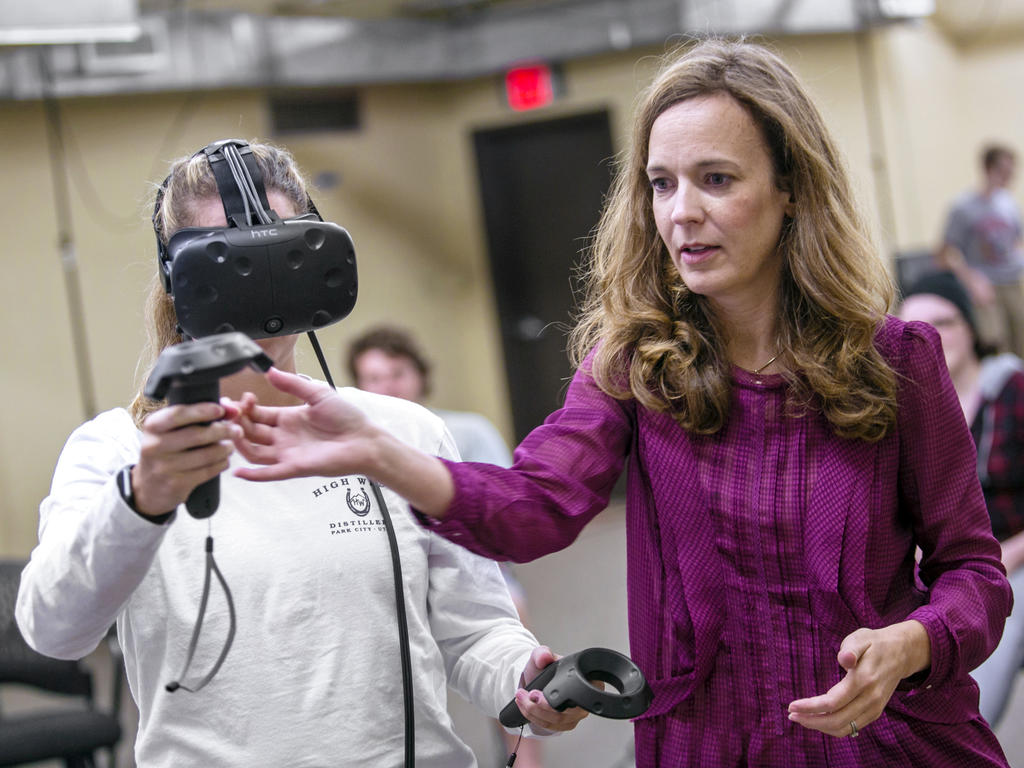The National Science Foundation awarded Rhodes College $650,000 in S-STEM grant funding over five years to increase the academic and career success of lower-income, academically talented students pursuing any STEM major at Rhodes.
“The NSF S-STEM grant is an incredible opportunity for us at Rhodes to recruit, support, and retain talented STEM-minded students and prepare them to be leaders in their fields,” says Dr. Betsy Sanders, associate professor and chair of the Department of Computer Science.
“We hope our program will be an exemplary model that can be adapted by other institutions to promote the success of STEM graduates. It’s a very exciting time to be a STEM major at Rhodes as we are seeing our graduates with liberal arts backgrounds being hugely successful and prepared for a bright future.”
Sanders is the principal investigator on the project. Associate Professor of Biology Dr. Jonathan Fitz Gerald, Professor of Chemistry Dr. Mauricio Cafiero, and Winton M. Blount Professor of Social Sciences and Professor of Psychology Dr. Katherine White are co-principal investigators.
Rhodes created the IMPACT program—Integrating Meaningful Practices with Access to Computational Thinking— to facilitate the grant’s aims. This new program will serve 18 students, in two cohorts of nine, over the five years. Throughout their college experience they will receive a scholarship to reduce, or even eliminate, their need for federal student loans and decrease their debt after graduation. These students will also participate in a new course on applications of computational thinking and a science-focused first-year writing seminar together, engage in grant-funded summer research experiences, live together in a designated residence hall, and receive peer mentoring. The grant began September 1 and the program is currently recruiting.
The IMPACT program aims to recruit students locally at high schools in Shelby County and graduate STEM scholars that are prepared to excel in graduate school or a STEM career.
By supplementing Rhodes’ excellent STEM curriculum with an innovative new STEM-oriented course on computational thinking as well as a STEM-focused expansion of a longstanding first-year writing seminar, IMPACT program scholars will have an edge among traditional STEM graduates and provide them with unique and broadly applicable skills that are in high demand in the STEM workforce. Across the U.S., employment in STEM occupations grew much faster than in non-STEM occupations over the last decade and it is projected to grow by 8.9 percent between 2014 and 2024.
This program is part of Rhodes’ recent expansion of STEM facilities and opportunities and our continuing commitment to make our top-tier liberal arts and sciences education accessible across socioeconomic lines. 60% of the most recent first-year cohort received need-based aid. 68% of the Class of 2023 pays less than half the advertised price of tuition.
This newest grant brings the total amount of NSF funding Rhodes has received to bolster STEM this year to nearly $2 million. Rhodes also began The Urban Teacher Partnership for Culturally Relevant STEM Education project after the college was awarded nearly $1.2 million from the Robert Noyce Teacher Scholarship Program of the National Science Foundation last Spring. The five-year project supports undergraduates interested in becoming K-12 mathematics and science teachers in high-needs school districts and to participate in research opportunities throughout their degree program to expand their skill set as educators.
“Producing the next generation of leaders in science education is important to Rhodes. We are grateful that the National Science Foundation has chosen to invest in our students and look forward to the impact those students will make in Memphis and around the world,” says Rhodes College President Marjorie Hass.
